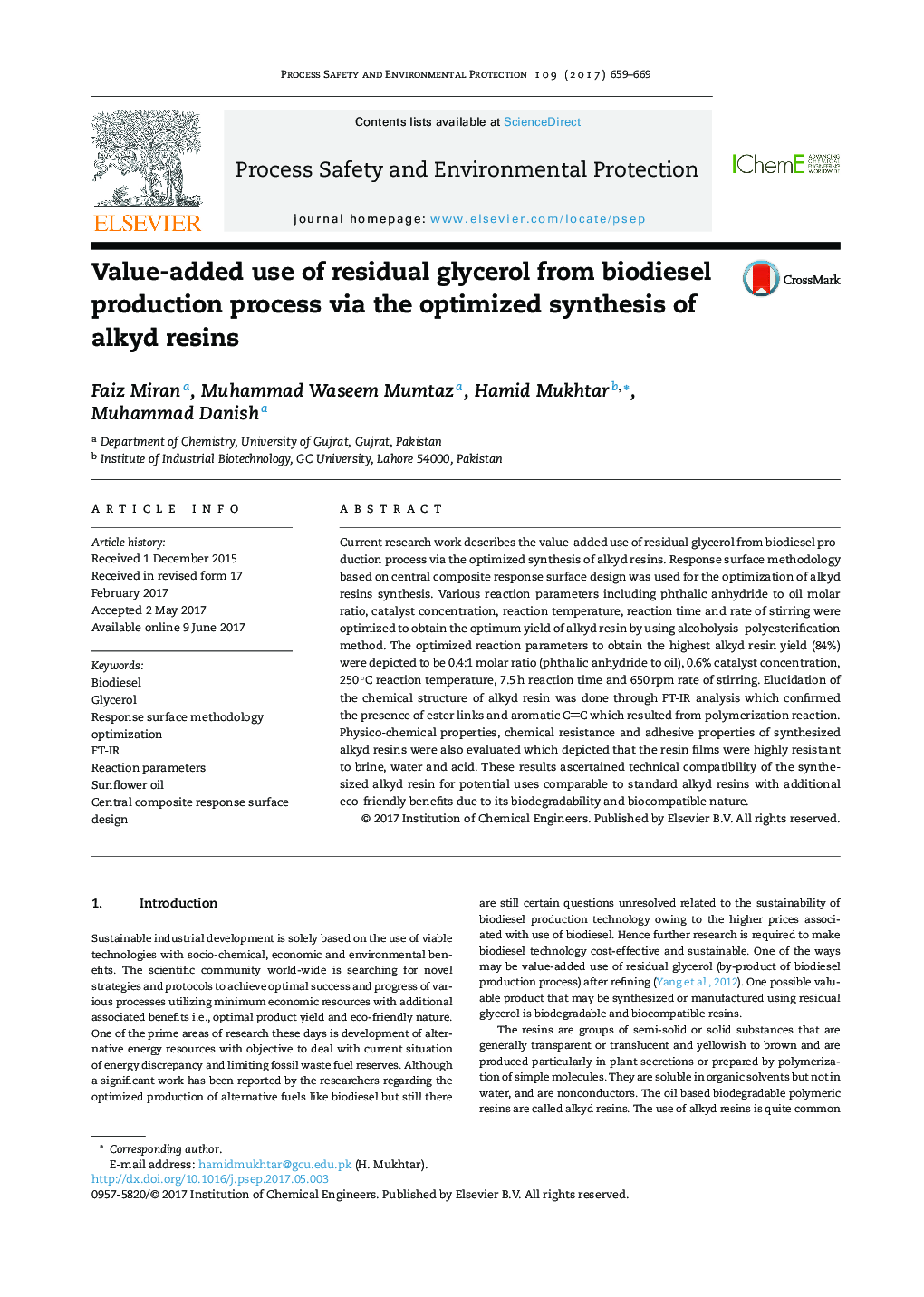| Article ID | Journal | Published Year | Pages | File Type |
|---|---|---|---|---|
| 4980844 | Process Safety and Environmental Protection | 2017 | 11 Pages |
Abstract
Current research work describes the value-added use of residual glycerol from biodiesel production process via the optimized synthesis of alkyd resins. Response surface methodology based on central composite response surface design was used for the optimization of alkyd resins synthesis. Various reaction parameters including phthalic anhydride to oil molar ratio, catalyst concentration, reaction temperature, reaction time and rate of stirring were optimized to obtain the optimum yield of alkyd resin by using alcoholysis-polyesterification method. The optimized reaction parameters to obtain the highest alkyd resin yield (84%) were depicted to be 0.4:1 molar ratio (phthalic anhydride to oil), 0.6% catalyst concentration, 250 °C reaction temperature, 7.5 h reaction time and 650 rpm rate of stirring. Elucidation of the chemical structure of alkyd resin was done through FT-IR analysis which confirmed the presence of ester links and aromatic CC which resulted from polymerization reaction. Physico-chemical properties, chemical resistance and adhesive properties of synthesized alkyd resins were also evaluated which depicted that the resin films were highly resistant to brine, water and acid. These results ascertained technical compatibility of the synthesized alkyd resin for potential uses comparable to standard alkyd resins with additional eco-friendly benefits due to its biodegradability and biocompatible nature.
Keywords
Related Topics
Physical Sciences and Engineering
Chemical Engineering
Chemical Health and Safety
Authors
Faiz Miran, Muhammad Waseem Mumtaz, Hamid Mukhtar, Muhammad Danish,
